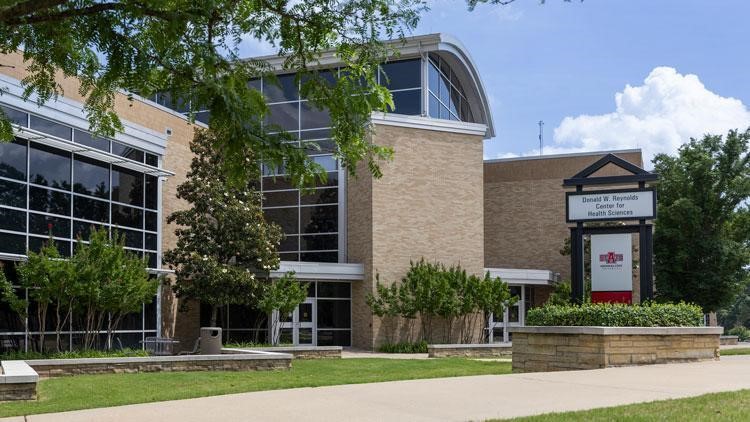Jonesboro, AR – (Contributed) – The Department of Communication Disorders (DCD) at Arkansas State University is the Speak Out! Therapy and Research Center in the state.
“The center invites individuals across Arkansas who are living with Parkinson’s disease or a related disorder to participate in the ongoing, evidence-based therapy program,” said Dr. Shanon Brantley, associate professor of communication disorders.
Developed by Parkinson Voice Project, the Speak Out! Therapy Program helps people regain and retain their speech and swallowing.
“The collaboration between the Parkinson Voice Project and DCD not only provides meaningful therapy, it also supplies graduate students in communication disorders with training,” continued Brantley.
Mollie Breckenridge Small, who graduated with both bachelor’s and master’s degrees in communication disorders, now works at North Arkansas Therapy Services in Mountain Home. She said the training she received and the work she did with individuals in this program helped her be the therapist she is today.
“Living in rural Arkansas, I am the only Speak Out! provider within nearly a two-hour radius. Patients travel over an hour away to receive these services,” said Small.
Brantley, who is the director of the ‘Speak Out!’ Therapy Program, said the speech therapy services are free to anyone who has Parkinson’s or a related disease.
“This is an incredible program that we have here at A-State. No other university in Arkansas is designated as a ‘Speak Out!’ therapy and research center,” said Brantley.
Since receiving the grant, Brantley said they have helped over 100 individuals and are ready to help more Arkansans regain and retain their ability to have speech and to swallow, which are two goals of the program.
John Heigel, a 79-year-old Jonesboro resident, was diagnosed with Parkinson’s disease about a year and a half ago. Brantley said he has completed his 12 sessions in the “Speak Out!” program.
“He ran out of breath frequently when speaking. These speech deficits directly impacted his life, as he is a preacher and his livelihood depends on his speech and voice,” she added.
Brantley said that Heigel was difficult to understand at times, but the program was a great benefit to him.
“They did a great job with me, improving my speaking and intentional focus,” Heigel said. “I have received feedback, not only from my wife, but also from my church and the Lions Club. I am speaking intentionally and understand how I need to not let Parkinson’s influence my life and presentation skills.”
Small said she has seen firsthand the rehabilitation provided to participants.
“Patients build confidence, strengthen their voices, and form lasting relationships within their group. They have shared tears and laughter, celebrated wins, and leaned on one another through challenges in their journey with Parkinson’s disease,” Small added.
Participants can receive therapy in person at the A-State Speech and Hearing Center, which is located at 2501 Danner Ave. inside the Donald W. Reynolds Center for Health Sciences. If one can’t come in person, therapy is also available through telehealth.
To connect with Brantley or the “Speak Out!” project, one may email speakout@AState.edu or call 972-2757. To learn more about the Parkinson Voice Project, one may follow this link.


